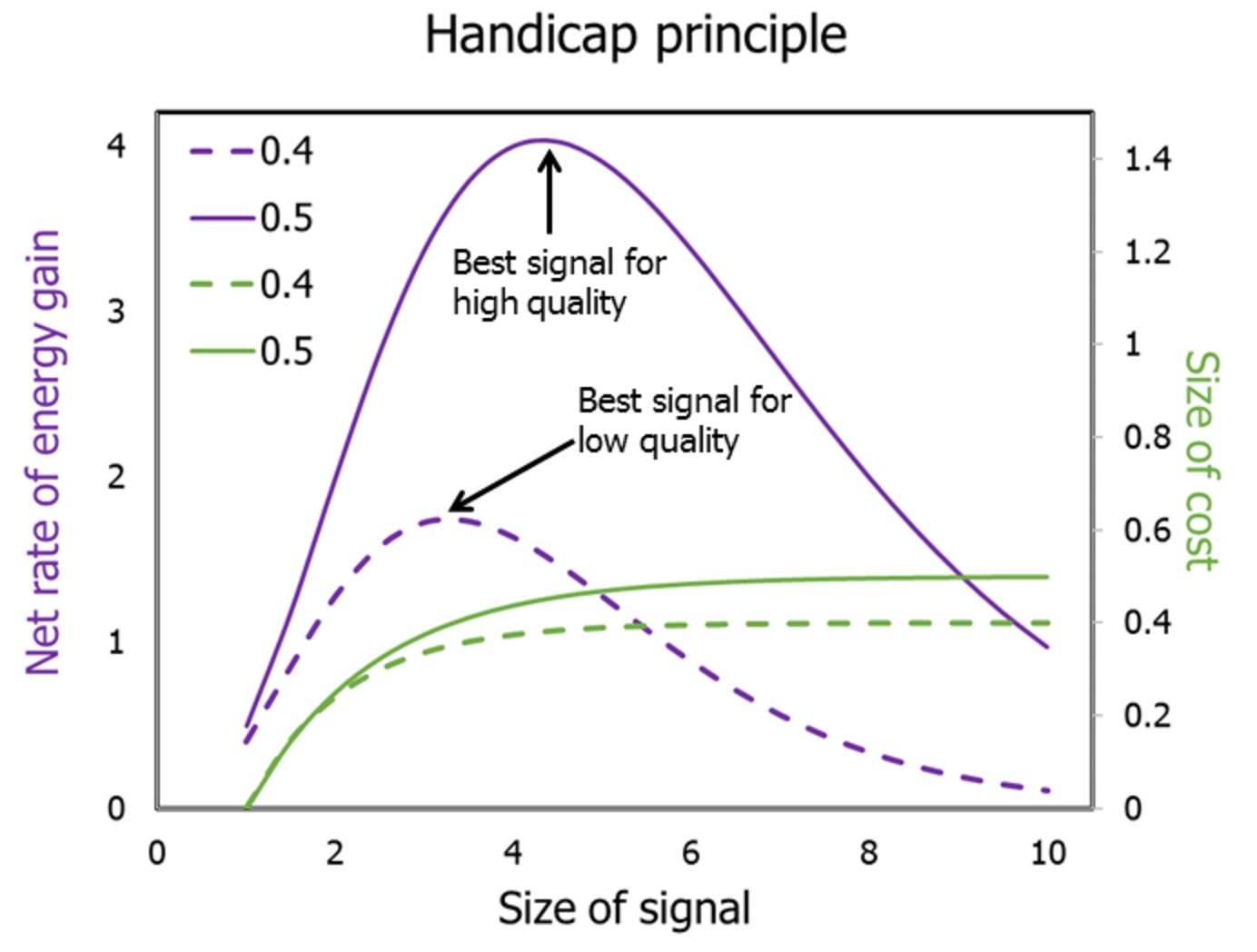Animal signals are kept honest because only the fittest individuals can deal with their cost.
Background
Males signal their quality, and could do better by cheating and advertising a higher quality than they are. Females want to choose the highest quality males, but can only use their signals. What stops low quality males lying? Something must, or males of all qualities would have the best signal, which would mean there would be no point females using the signals. Animals of many species signal and choose mates based on their signals, so something is keeping signals honest. Researchers had suggested that signals might act like a sports handicap: they indicate a high quality male because males can only afford to give themselves a handicap if they are very good at surviving.
Findings
This paper presents a mathematical model of the handicap idea to establish whether this would keep signals honest. The model assumes that males signal to females and females get benefit from mating with high quality males. It assumes that males invest in a signal, but that signals cost low quality males relatively more than they cost high quality males. For instance, a weak peacock with a large tail might be at more risk of being killed by predators than a strong male with a tail of the same size. The model shows that these unequal costs keep the signal honest, and so females continue to use it to choose males.
Implications
The handicap principle helps to explain why animal signals are honest when it would pay low quality animals to cheat. It therefore explains why lots of species have costly signals. Costs can include risk of being killed by a predator, extra energy use which means more food must be found, or pigment costs, such as the red pigment seen in many male animals, which must be found in the food. The idea means that sexual signals are not just accidental signals that are preferred because they have been preferred before (the “runaway process”), as was previously believed.
Subject
Behavioural ecology
Subject Group
Zoology and Ecology
Keywords
signal
sexual selection
handicap
mate choice


